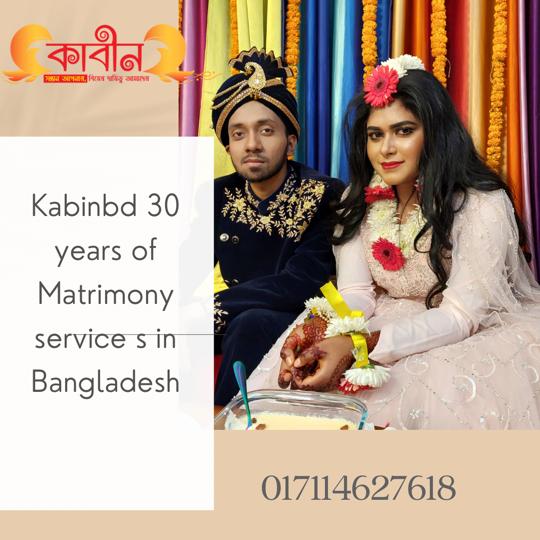Why Is Matrimony Important?
Introduction
Matrimony, or marriage, is a universal institution that holds immense significance in societies worldwide. It is a cultural, legal, and social contract that binds individuals, often for a lifetime, with mutual rights and responsibilities. The importance of matrimony can be seen from various perspectives, including personal, societal, and legal dimensions. This essay explores the reasons why matrimony is crucial in today’s world, delving into its role in providing stability, fostering companionship, legal implications, and its impact on children and society.
Emotional and Psychological Support
Marriage provides emotional and psychological support to individuals. Companionship is a fundamental human need, and matrimony offers a secure and stable environment for emotional growth and support. Life is replete with challenges, and having a life partner to share these challenges with can make them more manageable. A spouse often serves as a confidant, offering empathy, love, and understanding during difficult times. Marriage creates a unique bond that helps individuals navigate life’s ups and downs, promoting mental and emotional well-being.
Stability and Security
Matrimony contributes to personal and financial stability. In a marriage, individuals often share financial responsibilities, which can lead to a more secure financial future. The pooling of resources can result in a higher standard of living for the couple. Moreover, marriage often provides a stable environment for raising children. A two-parent household can offer children greater stability, emotional support, and opportunities for growth.
Legal and Economic Benefits
Marriage carries numerous legal and economic benefits. Married couples are often entitled to tax breaks and other financial incentives. Additionally, spouses can inherit property and assets without facing significant tax implications. Matrimony can also provide access to healthcare and social security benefits. In essence, marriage offers a legal framework that can be advantageous in terms of asset protection and financial planning.
Commitment and Responsibility
Matrimony is a powerful symbol of commitment and responsibility. When individuals decide to marry, they make a solemn promise to stand by each other through thick and thin. This commitment fosters a sense of responsibility towards one’s spouse, promoting mutual growth and well-being.
Family and Social Support
Matrimony extends beyond the couple to create a network of family and social support. In most societies, marriage involves not just two individuals but also their families. These extended networks can provide crucial support in times of need. In times of joy or sorrow, the married couple can rely on their families for assistance, advice, and comfort. These bonds strengthen the social fabric and provide a sense of belonging.
Cultural and Religious Significance
Marriage often carries significant cultural and religious importance. It is a rite of passage that symbolizes the transition to adulthood and responsibility. In many cultures, weddings are celebrated with elaborate rituals and ceremonies that uphold traditions and values. For many, marriage is not just a legal contract but a sacred covenant. These cultural and religious aspects of matrimony play a vital role in preserving heritage and values.
Child-Rearing and Family Building
Matrimony plays a crucial role in child-rearing and family building. It provides a stable and nurturing environment for children to grow and thrive. Research indicates that children raised in two-parent households tend to have better emotional, social, and educational outcomes. .
Economic and Societal Stability
Marriage contributes to economic and societal stability. In societies with a high rate of stable marriages, there is a lower likelihood of poverty, crime, and social unrest. Marriage promotes a sense of belonging and social cohesion, as individuals are more likely to invest in their communities and work towards collective well-being when they have a family to support.
Companionship in Old Age
In later stages of life, when individuals face challenges related to health and aging, marriage provides crucial companionship and support. Spouses can care for each other, offer emotional solace, and reduce feelings of loneliness and isolation.
Personal Growth and Fulfillment
Marriage has the potential to foster personal growth and fulfillment. The partnership encourages individuals to strive for self-improvement and to support each other’s dreams and aspirations.
Conclusion
Matrimony is a fundamental institution that plays a multifaceted role in contemporary society. It offers emotional and psychological support, financial stability, legal benefits, and social cohesion. It is a symbol of commitment and responsibility and is deeply intertwined with cultural and religious traditions. Moreover, marriage is instrumental in child-rearing and family building, contributing to economic and societal stability. Marriage continues to be a bedrock of human society, offering a path to personal growth and fulfillment, and promoting the well-being of individuals, families, and communities alike.
Different types of matrimony.

Introduction
Matrimony, the institution of marriage, is a multifaceted concept that varies significantly across cultures, regions, and time periods. While the fundamental premise of matrimony remains consistent – the union of two individuals in a lifelong commitment – the forms, customs, and practices associated with it can be incredibly diverse. In this essay, we will delve into different types of matrimony, including traditional, modern, and alternative forms, highlighting the unique characteristics and cultural significance of each.
Traditional Matrimony
1.1 Arranged Marriage
Arranged marriages are a prevalent form of traditional matrimony, particularly in many Asian, Middle Eastern, and African societies. In arranged marriages, families or matchmakers play a significant role in selecting potential partners for the individuals involved. The focus is often on compatibility, social status, and family reputation rather than romantic love. These marriages rely on the belief that the families, with their experience and wisdom, can make suitable matches.
1.2 Religious Matrimony
Religion has a substantial influence on the way matrimony is conducted. Various religious traditions have specific customs and rituals related to marriage. For instance, Christian matrimony involves ceremonies in churches, Hindu matrimony has elaborate rituals like the Saptapadi, and Islamic matrimony adheres to the practices outlined in the Quran. These religious matrimony types have their unique ceremonies and rules that guide the union of two individuals.
2 Love Marriage
In contrast to arranged marriages, love marriages are rooted in the individuals’ feelings of affection and attachment towards each other. Partners choose each other based on personal compatibility, shared values, and romantic love. Love marriages are common in many Western societies, and they emphasize the importance of personal choice and emotional connection.Love marriage refers to a marital union where the individuals involved choose their partners based on mutual affection, attraction, and compatibility rather than familial arrangement or other external factors. In a love marriage, the couple typically falls in love, decides to marry, and seeks approval from their families or may choose to marry without their families’ consent. This type of marriage is common in many cultures around the world, particularly in societies where individuals have more freedom to choose their life partners based on personal preferences and feelings. Love marriages can be contrasted with arranged marriages, where families or other intermediaries play a significant role in selecting a spouse for the individuals involved.
2.3 Same-Sex Matrimony
Same-sex matrimony, involving two individuals of the same gender, is a relatively recent development in many parts of the world. In recent years, numerous countries have legalized same-sex marriage, recognizing the rights of individuals to marry whomever they love, regardless of their gender. This form of matrimony has been a significant step toward achieving LGBTQ+ rights and equality.
Alternative Forms of Matrimony
3.2 Common-Law Matrimony
Common-law matrimony, also known as de facto marriage, is a type of informal matrimony where couples live together as spouses without a formal legal ceremony. In some jurisdictions, common-law marriages are recognized, granting the same legal rights and responsibilities as traditional marriages. These relationships often require a minimum cohabitation period for recognition.
Common-law marriage, also known as informal marriage or marriage by habit and repute, is a legal concept that recognizes a couple as married even though they have not obtained a marriage license or participated in a formal ceremony. In a common-law marriage, the couple typically lives together and presents themselves to others as spouses, holding themselves out as married.
The specific requirements for establishing a common-law marriage vary by jurisdiction, but generally include the following elements:
- Cohabitation: The couple must live together as spouses.
- Intent: Both parties must have the intent to be married and hold themselves out to others as married.
- Mutual consent: Both parties must agree to the marriage.
Not all states or countries recognize common-law marriage, and those that do have different rules and requirements for its validity. In jurisdictions where common-law marriage is recognized, couples may enjoy legal rights and responsibilities similar to those of formally married couples, such as property rights, inheritance rights, and the ability to make medical decisions for each other. However, not meeting the requirements for common-law marriage may mean that the couple is not entitled to these legal benefits.
It’s important for couples considering common-law marriage to understand the laws in their jurisdiction and to be aware that cohabitation alone does not necessarily establish a common-law marriage.
Conclusion
Matrimony is a dynamic institution with various forms that reflect the rich tapestry of human relationships. Traditional matrimony, with its arranged and religious aspects, coexists with modern forms like love, interfaith, interracial, and same-sex matrimony. Alternative matrimony types challenge conventional norms and highlight the evolving nature of human relationships.
“বিয়ে সংক্রান্ত যেকোনো তথ্য ,সেবা এবং পরামর্শ পেতে যোগাযোগ করুন কাবীন বিডির সাথে । ” কল করুন:01711462618










